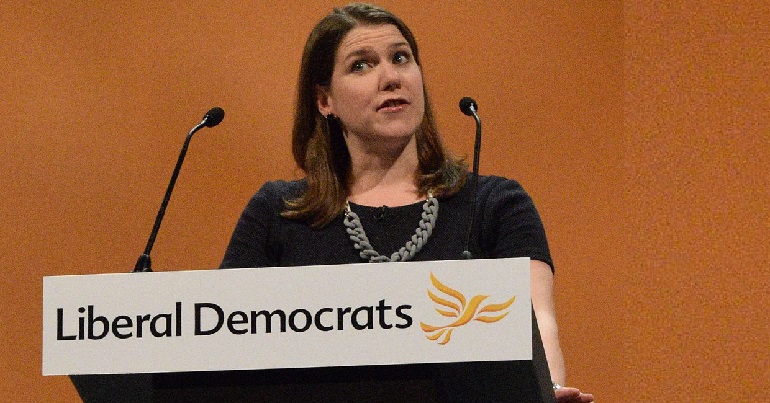The new Liberal Democrat climate policies aren’t radical – they’re a recipe for disaster

In the minds of every climate activist, scientist or climate-conscious person there is an internal battle that plays out almost daily. Do we applaud the baby steps of the relevant bodies slowly moving their position to a better one on the climate, or do we expose it for what it is, a weak attempt, verging on utter failure, to align with scientific consensus?
On the one hand, you wouldn’t criticise a baby for not running a mile upon taking its first step. But climate change is far more pressing an issue than anything else, and if we do not start running our entire species and fellow species are threatened.
Greening the Lib Dems?
Last weekend marked such an occasion, as the Lib Dems kicked off conference season in Bournemouth. They unveiled supposedly ‘radical’ new climate policies, such as a Green Investment Bank, a series of climate Citizen’s Assemblies and a permanent climate overseer in the cabinet. On the surface this looks good.
But when you delve deeper you see that in essence the Lib Dems will talk the talk but not walk the walk.
They want to see more electric cars in production, but aren’t willing to discuss how in reality we need to move away from car use in general as far as possible.
They want to see an end to fracking, but only skim the surfaces of the rapid societal shift to renewables that we need via a Green New Deal (indeed, they don’t even mention a Green New Deal once over 85 pages).
They want hydrogen heated homes but not a major effort for insulation of existing homes to reduce energy use.
They want diesel and petrol banned by 2030, but won’t renationalise the railways to allow government-set low prices.
And they want a Green Investment Bank, but aren’t willing to acknowledge that continuous economic growth is not compatible with ecological responsibility (and needless to say, economic growth will likely become an impossibility if we do not radically alter our trajectory).
Not good enough
Effectively the Lib Dem line is an improvement, a shift in the right direction. But when we are only a decade away from hitting the targets necessary for survival it’s too little too late. There isn’t time to get together and give them a pat on the back for getting better, we must demand only the maximum effort and nothing less.
The fact that the Guardian labeled this set of policies as ‘radical’ in the age of Extinction Rebellion and the Youth Strikes demonstrates just how far we still have to go to shift the debate.
It also demonstrates how little our opponents understand the gravity of the situation facing us. The climate crisis isn’t a conventional problem to be placed next to housing and education, as vital as those two policy areas are. It is a catastrophe looming over our heads that is so unimaginably large, it infiltrates every single aspect of our current lifestyles.
The climate crisis is the housing crisis; currently over one in six UK homes are at risk of flooding.
The climate crisis is the education crisis; our classrooms reach double the CO2 concentration needed to cause cognitive decline.
The climate crisis is a refugee crisis, with tens of millions of people to be displaced within a decade.
These are problems that are affecting us right now. How bad will things be by 2030 when emissions have continued, and likely grown, for another 11 years? And then by 2040? By 2045?
The answer is not likely to be a pretty one.
And then how will we be in the decades after, even assuming we’ve reached a global zero carbon by then (a big assumption; we can’t take for granted the actions of other countries in this battle)? The climate crisis is worse than the surface of what we see. It is capable of triggering various ‘natural’ cascades, such as melting Arctic and Antarctic permafrost releasing more methane, triggering worse climate change, or more CO2 in the air making leaves naturally thicker and thus unable to absorb as much.
I could go on. Sitting back and congratulating the Lib Dems for their new policies won’t change the science.
When climate science is looked at it paints a very bleak picture, but it’s important to turn that fear into motivation to do all we can to avoid it happening. A 2045 target is a weak, half-hearted effort to reach safety (safety as defined not by government but by the boundaries of what our planet is capable of). Instead we need to think big, and we need to do everything in our power to alter our direction. Too many lives depend on it.
The climate crisis touches every aspect of our lives, and threatens all. Carbon zero by 2045 isn’t ‘radical’, it’s actively complacent. When new climate proposals are put forward we can take a moment to acknowledge the improvement before explaining exactly how much more is still left to do.
Header image credit: Keith Edkins, Creative Commons




Leave a Reply